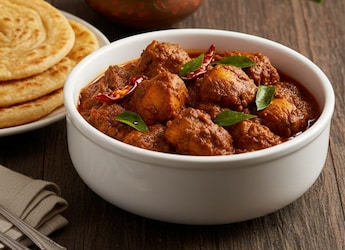Imagine cooking too much of your favourite butter chicken or ordering an extra-large pizza for dinner, so much so that you cannot finish it all and have some leftovers. No problem, we'll pop it in the fridge and eat it tomorrow. Come the next day, and you cannot stop thinking about those leftovers at lunchtime. You reheat it, taste the first bite, and...just wow, it tastes even better the next day! Is it just because of your excitement or has something changed with your food? Let's find out the scientific reason behind why some leftovers taste even nicer than fresh food.
Here Are 4 Reasons Why Some Foods Taste More Delicious The Next Day:
1. Chemical Reactions Can Produce More Flavor Molecules
One reason why leftovers taste good is that chemical reactions keep taking place in your food even after cooking, according to the US Institute of Food Technologists. This can cause foods with certain ingredients to taste even better the next day by producing more and/or new flavour molecules.
Also Read: How Long Can You Store Leftover Food: Details Inside
2. More Time, More Flavor
Why does slow-cooked Dal Makhani taste better than the same dal prepared faster? It is because the seasonings get more time to soak into the dal, making the dish more flavorful. Something similar happens with the leftovers in which more time allows the flavours to meld and marry for longer, compared to the fresh dish.
Photo Credit: iStock
3. Thank You, Refrigerator
The chemical reactions that occur in the leftovers can make them degrade and go bad soon. However, if you put them in the refrigerator, some of the chemical reactions slow down, preserving the food as well as enhancing the flavours. This is commonly seen in gravy dishes that include foods like garlic and onion that react with proteins and starches while cooking and continue doing so when left in the fridge overnight, according to a report by Forbes.
Also Read: Is Leftover Food Bothering You? Turn Them Into These 7 Delicious Snacks
4. Our Taste Buds Like The Food Structure Of Leftovers Better
When we eat freshly prepared food, it is easier to identify the distinct flavours of the ingredients used in the dish. You can tell there is some cinnamon, chilli, or any other spice added. However, this can be more of a harsh experience for your taste buds. In the case of leftovers, the seasonings get to blend further and further, causing the existing dish to become rounded in flavour and more appealing to our taste buds.
Word Of Caution
Even though leftovers may taste better or make your meal planning more convenient, it is important to handle them safely to prevent any foodborne illnesses. Leftovers can be kept in the refrigerator for 3 to 4 days or frozen for 3 to 4 months, according to the US Department of Agriculture (USDA). It is best to eat them within the second or third day after storing them. The USDA also suggests throwing away foods left out at room temperature for more than two hours, as well as foods left at temperatures higher than 90 degrees Fahrenheit (32 degrees Celsius) after an hour.
